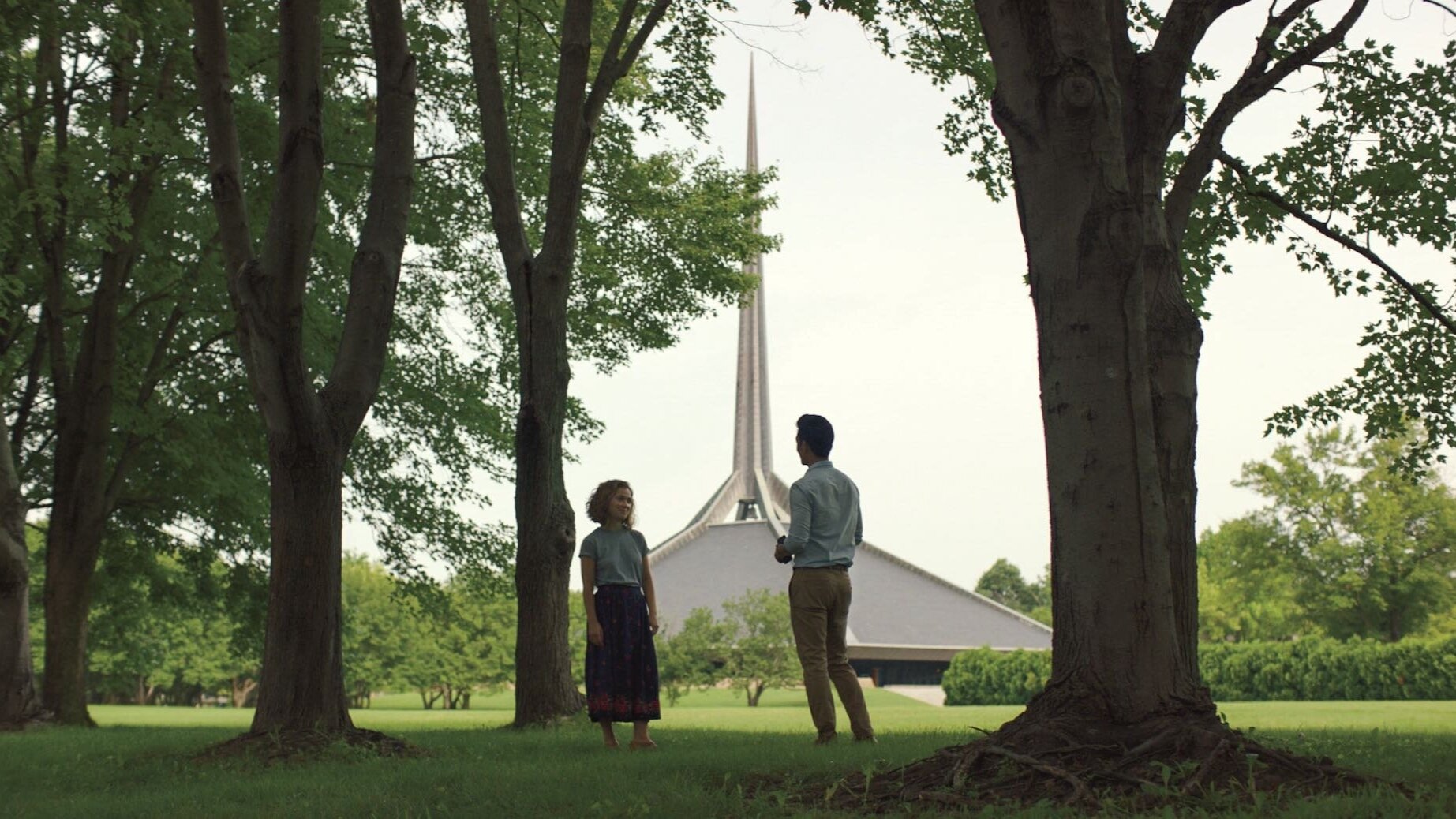Columbus
An ambitious work influenced by Ozu which triumphs through the acting.
The title of this film refers not to a person but to a place: that place is Columbus, Indiana and the town and its architecture play a strong role in this first full-length feature from Kogonada. Writer, director and editor, Kogonada (he uses no other name) is clearly a film buff whose earlier works - both short documentaries and videos - have often offered reflections on the work of such directors as Bresson, Godard, Hitchcock, Kubrick and Wes Anderson. But this Korean filmmaker claims a special bond with Ozu and has spoken of Columbus as a work echoing Tokyo Story in particular.
Given that background, it is no surprise to find that Columbus disdains commercial appeal seeking instead to be a true work of art. Every shot is considered and beautifully photographed by Elisha Christian and Kogonada certainly follows Ozu in concentrating on everyday lives rather than providing any actionful plot. He further echoes the Japanese master in the film's focus on intergenerational relationships - in this case two of them. First, there's the Korean-born Jin (John Cho) who has come to Columbus on learning that the father from whom he has become remote and who is a teacher there is in all probability on his deathbed. Then we have Casey (Haley Lu Richardson) a local girl who could leave for university but who seems more likely to stay put to look after her mother (Michelle Forbes), a woman with a troubled history who may need care.
Towards the close, one scene between Casey and her mother strongly recalls Ozu's work (although for that matter there's a corridor shot elsewhere that seems to reference Kubrick's The Shining of 1980). In any case, despite the declared influence, Kogonada's art seems much more self-conscious than that of Ozu and there are moments of stylisation and intercutting far removed from Ozu's world. As for the emphasis on architecture, that seems more in line with such Antonioni works as The Eclipse (1962). But, in truth, Columbus does its own thing while bringing to mind the intimacy and slow pace often found in the films of Kelly Reichardt.
The emphasis here is very much on Jin and Casey leaving the other characters rather in the background, believable but not fully focused which can sometimes be frustrating. It is the contrasted figures of Jin and Casey who make Columbus memorable with the actors inhabiting them from the inside: they bond through talking and they influence each other, but it is what is expressed in their faces that really counts. John Cho is very adept, but it is Haley Lu Richardson, already known for her fine contribution to The Edge of Seventeen (2016), whose performance has a depth that we rarely see in cinema. Here is a great actress who commands attention by hiding all signs of acting to become the person she is portraying. Some viewers will not take to Kogonada's approach and others may question some aspects of it, but Richardson in particular brings to the screen a sense of reality that is quite extraordinary to behold.
MANSEL STIMPSON
Cast: John Cho, Haley Lu Richardson, Parker Posey, Michelle Forbes, Rory Culkin, Erin Allegretti, Shani Saylers Stiles.
Dir Kogonada, Pro Andrew Miano, Aaron Boyd, Danielle Renfrew Behrens, Chris Weitz, Giulia Caruso and Ki Jin Kim, Screenplay Kogonada, Ph Elisha Christian, Pro Des Diana Rice, Ed Kogonada, Music Hammock, Costumes Emily Moran.
Superlative Films/Depth of Field/Nonetheless Productions-Network Releasing.
104 mins. USA. 2016. Rel: 5 October 2018. Cert. 12A.


